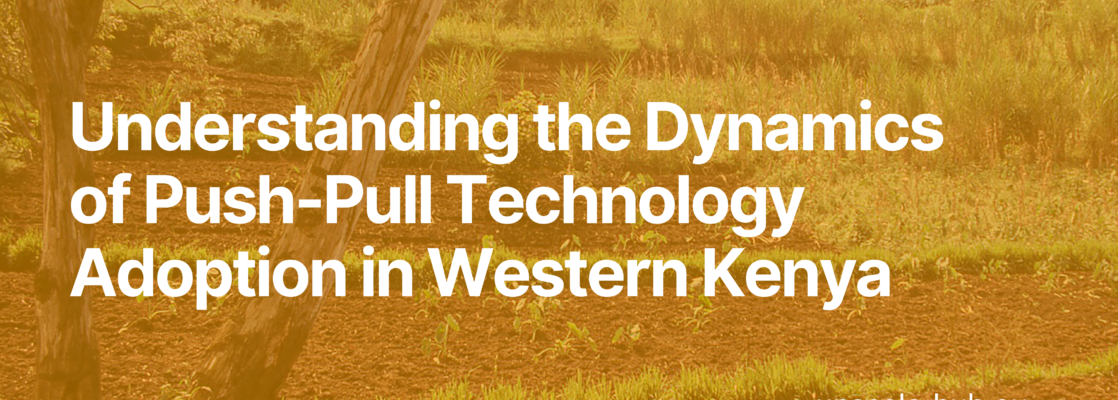In Western Kenya, where agriculture is the backbone of livelihoods, smallholder farmers face ongoing challenges from pests like Fall armyworm and Striga weed, which threaten crop yields and food security. In order to solve these challenges, the UPSCALE project has been using integrated agroecological management based on push-pull technology (PPT) for widespread and climate-resilient sustainable intensification of agriculture in the sub-Saharan region of East Africa. Although PPT has shown promising results in research, its widespread adoption among farmers in the region has not been as straightforward.
Farmers’ Dynamic Decision-Making Processes
A recent study, “Farmers’ decision processes about biocontrol innovation adoption: dynamics surrounding push-pull technology in Western Kenya,” explored the motivations and challenges that influence smallholder farmers’ decisions regarding PPT adoption. The research highlights that farmers’ decision-making is not based on a simple “yes or no” to adopting new technologies but is instead a dynamic process shaped by their evolving needs, available resources, and changing circumstances.
Initially, farmers were drawn to PPT because of its potential to increase yields by controlling pests like Stemborers and Fall armyworm. However, over time, their motivations shifted. As farmers gained experience, many began to appreciate the additional benefits of PPT, such as providing fodder for livestock and improving soil health. For instance, Sylvester, an active promoter of PPT in his community, started integrating vegetables into his PPT plots to meet local food demand, demonstrating how farmers modify the technology to suit their economic and nutritional needs.
Adapting to Changing Conditions
The study also found that farmers regularly adapt PPT to their specific environmental and social contexts. For example, some farmers in Western Kenya used local maize varieties instead of hybrids due to cost constraints, while others experimented with planting beans alongside maize in PPT plots, a practice that was later endorsed by agricultural experts.
The constant adaptations reflect farmers’ ability to experiment and modify practices to fit their evolving needs, such as adjusting planting schedules in response to weather changes or experimenting with different pest control methods when pest outbreaks occur.
Farmers in the study area also reported that their decisions were influenced by social networks, including interactions with peer farmers, agricultural extension workers, and local groups. For example, Matilda, a farmer in the region, began using PPT after hearing success stories from other farmers in her community. However, she also had to overcome challenges such as limited access to quality seeds and input costs.
Social dynamics also played a significant role, with farmers sometimes feeling left out of local farmer groups or feeling pressure from “model farmers” who dominated the adoption of new technologies. Emmanuel’s experience, for example, highlighted the tensions within farming groups, where some farmers felt excluded from accessing resources and support that were intended to be shared.
Challenges and Opportunities
While the benefits of PPT are evident, the study underscores that barriers to adoption persist. These include high input costs, inadequate access to quality seeds, and labour constraints. Older farmers have also stopped practising PPT due to the labour-intensive nature of the technology and health-related issues. However, as the research suggests, addressing these challenges requires a holistic approach that includes farmer-led innovations, policy support, and improved access to resources.
The key to UPSCALEing PPT lies in recognizing farmers as innovators and partners in the agricultural process. By supporting farmer experimentation and facilitating the exchange of knowledge between farmers, researchers, and agricultural organizations, PPT can become more adaptable and effective in diverse contexts.
The adoption of PPT in Western Kenya demonstrates the complexity of agricultural innovation and in that sense farmers, stakeholders and local governments should participate equally in the decision-making processes.
You can learn more throughout the scientific paper “Farmers’ decision processes about biocontrol innovation adoption: dynamics surrounding push-pull technology in Western Kenya.“


